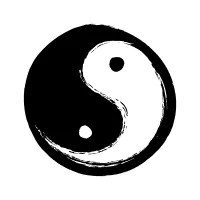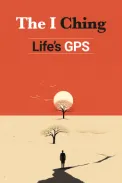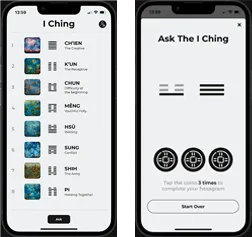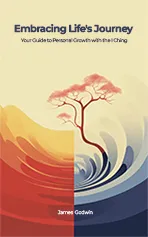What is the I Ching

What is the I Ching
The I Ching, often known simply as the Ching, is one of the oldest and most profound texts in the world, revered for its wisdom and guidance. Rooted in Chinese philosophy, it offers a powerful system of divination based on hexagrams formed from yin and yang lines. This blog post explores the rich tradition of the Ching, how to use the I Ching, and why it continues to inspire seekers today. Whether you're curious about its origins, intrigued by its symbols, or eager to consult its ancient guidance, this article is worth reading for anyone interested in Chinese wisdom, self-reflection, and the enduring relevance of the Book of Change.
What is the Ching and Why Is It Important?
The Ching, also known as the I Ching or Book of Change, is an ancient Chinese divination text and one of the oldest of the Chinese classics. It serves as a guide to understanding the ebb and flow of events through symbols, stories, and wisdom. Rooted in the depths of Chinese literature and culture, the Ching transcends mere fortune-telling—it provides a philosophical framework for navigating uncertainty and embracing transformation. Historically, it has been used not only for divination but also for philosophical and political insight, especially during the Zhou dynasty, when kings and ministers consulted it as an oracle to inform their decisions and align themselves with the natural order.
This text stands as a cornerstone of Chinese philosophy, often studied alongside works like the Tao Te Ching. The Ching uses a symbolic language built from six-line figures known as hexagrams, each composed of a series of yin (broken) and yang (solid) lines that embody the dynamic interplay of opposing forces. These figures offer insight into patterns of life and change, enabling users to recognise the stages of development in any given situation. Its teachings have influenced generations of scholars, rulers, and seekers, making it a foundational text not only in terms of divination but also as a philosophical compass.
It is a self-help book, a political guide, and a spiritual text all in one. Its enduring appeal lies in its ability to remain timeless—whether used for introspection, leadership, or artistic inspiration. Through the Ching, one can explore the harmony between human life and the cosmos, between inner truth and external circumstance. That profound relevance is why it continues to be a source of wisdom across centuries and continents.
How Are Hexagrams Formed in the Ching?
A hexagram in the Ching is formed by stacking six horizontal lines, each either broken (representing yin) or unbroken (representing yang). These are known as the lines of a hexagram. Each line of the hexagram represents a moment in a process of change and has its own specific meaning. The full figure is composed of two trigrams—each a group of three lines—that combine to create the symbolic structure of a hexagram. These two trigrams reflect elemental forces or archetypes, such as heaven, earth, wind, thunder, and water, and their interactions depict the energy and movement within a situation.
The traditional way to generate a hexagram is by using either the three coins method or the older yarrow stalk method. These tools help determine each of the six lines that form the symbol. The coin method is relatively quick and accessible, while the yarrow stalk method, rooted in ancient ritual, is more meditative and precise, reflecting a deeper connection to classical Chinese practice. In both cases, the process of casting encourages focused intention and mindfulness.
In some versions of the text, the hexagrams are accompanied by a Chinese character that conveys their essential meaning or theme. These characters often carry layers of interpretation, rooted in old Chinese language and symbolism, which enrich the reading experience. The resulting hexagram is then interpreted to provide insight into the question posed, not as a prediction but as a snapshot of the energies in motion. Each individual line can change, giving rise to a new single hexagram or even a series of four hexagrams, symbolising ongoing evolution and transformation within the inquiry.
What Is the Role of Trigrams in the I Ching?
Each hexagram is made up of two trigrams — a set of three lines—that represent natural elements like heaven, water, fire, mountain, and so on. These trigrams are essential in understanding the dynamic nature of the Ching. Each trigram holds deep symbolic meaning and corresponds to a direction, family role, season, and elemental force, all rooted in ancient Chinese cosmology. When combined into hexagrams, these dual sets generate nuanced portraits of life's unfolding situations.
The eight trigrams—Heaven (☰), Earth (☷), Thunder (☳), Water (☵), Mountain (☶), Wind (☴), Fire (☲), and Lake (☱)—are the foundational building blocks for the 64 hexagrams. Each trigram expresses a unique energetic pattern. When two trigrams are placed one above the other, their interaction forms a complete hexagram. The top trigram is generally interpreted as the outer world or environment, while the lower trigram reflects internal dynamics or personal response.
The eight hexagrams formed by various combinations of these trigrams are the basis for all 64 hexagrams. The relationships between these elements represent the balance of forces in life. The concept of yin and yang is at the heart of this system, reflecting duality and transformation. The ever-shifting interaction of these complementary forces drives the Ching's deep insights into change, harmony, and conflict, guiding users toward better understanding and alignment with the natural flow of life.
The Ching as a Book of Change What Does That Mean?
The Book of Change—as the Ching is often translated—is not about predicting a fixed future. Instead, it offers guidance on how to navigate life’s shifts. At its core, the Ching embodies a worldview in which transformation is both natural and necessary. It reflects the ancient Chinese understanding that all things move through cycles of growth, decline, renewal, and rebirth. Rather than viewing change as something to be feared or resisted, the Ching encourages a mindset of flexibility, presence, and alignment with the flow of the Tao.
The Ching teaches that change is the only constant, and by observing the patterns around us, we can act in harmony with them. This principle is conveyed through the structure and meaning of each hexagram, with its six evolving lines capturing a moment within a broader cycle. The patterns described in the hexagrams can help individuals recognise timing, readiness, and the forces influencing a given situation. In this way, the Ching serves as both a mirror and a compass—a tool that reveals not what will happen, but how one might best respond.
In this context, each hexagram presents a scenario or phase of change. The words of the I Ching describe this state and offer philosophical commentary, often attributed to sages such as the Duke of Zhou. These insights are less about instruction and more about contemplation. The guidance offered isn't prescriptive but interpretive—meant to stir reflection, provoke insight, and support wise action. Rather than dictating a course, the Ching empowers individuals to become more attuned to their inner wisdom and the rhythms of the world around them. This is why the Ching remains one of the oldest Chinese wisdom traditions still studied and respected today, offering timeless relevance in a world of constant flux.
How to Use the I Ching for Divination Today?
To consult the I Ching, begin by focusing on a personal question. This question should be sincere and open-ended—something that invites reflection rather than a simple yes-or-no answer. The act of forming a question itself helps bring awareness to the situation and clarify your intentions. Once the question is set, you use either the three coins or the traditional yarrow stalks to cast the hexagram. The outcome is determined line by line, building the six-tiered structure that reveals the energy of your present moment.
Once your six lines are established, refer to the text to interpret your result. The hexagram you cast will contain messages both in its overall form and sometimes in one or more changing lines, which signal areas of transformation. A changing line may shift the initial hexagram into a second one, offering deeper insight into the movement or evolution of your situation. This process is not meant to predict an outcome but to help you understand the dynamics at play.
Modern apps and online tools make it easy to use the I Ching, but the core process remains rooted in mindfulness. Whether you're drawing hexagrams with digital coins or physical yarrow stalks, the essence of the practice lies in quiet introspection and openness to insight. Each hexagram interpretation includes commentary on the overall figure and sometimes on individual lines, which are rich with metaphor and symbolism derived from centuries of Chinese tradition. These insights can act as a mirror, revealing hidden dynamics in your life, illuminating your inner world, and guiding thoughtful action. In this way, the I Ching becomes not just a tool for divination, but a companion for spiritual growth and self-awareness.
Understanding the 64 Hexagrams A Map of Life's Transformations
The 64 hexagrams of the Ching form a complete symbolic system of human experience. Each hexagram has a name, a theme, and a progression of meanings depending on which lines are changing. Together, they form a universal matrix that captures every phase of life, from the seed of potential to the fruition of action, and eventually, decline and renewal. These hexagrams represent archetypal energies that play out across relationships, careers, decisions, conflicts, and inner development. The structured pairing of two trigrams in each hexagram weaves elemental forces into a map of evolving situations.
Each hexagram can be seen as a mirror reflecting a particular configuration of forces at play in a given moment. For example, Hexagram 1, “The Creative,” signifies dynamic force and initiative, while Hexagram 2, “The Receptive,” reflects openness, support, and yielding. Other hexagrams describe tension (like “Conflict” or “Opposition”), transition (like “Approach” or “Breakthrough”), and completion (like “After Completion”). The interplay between the hexagram’s overall meaning and the changing lines offers layers of interpretation that can evolve with the reader's understanding and life context.
This system maps the journey from beginnings to completion, from resistance to breakthrough. Whether you are facing a decision, a challenge, or a moment of growth, there is a hexagram that speaks to that experience. The Ching acts as a repository of ancient psychological and spiritual knowledge, inviting users to explore subtle patterns and deeper truths. These archetypes are deeply embedded in Chinese culture and reflect insights passed down since the Zhou changes. As a result, the 64 hexagrams remain relevant and resonant, offering guidance that transcends time, place, and belief system.
Translation Matters How Different Versions of the Ching Shape Our Understanding
The translation of the I Ching has been a major factor in how it is perceived in the West. Because the Ching was originally composed in old Chinese, a language rich in metaphor, brevity, and multiple meanings, translators are often tasked with interpreting more than just words—they must also convey tone, cultural nuance, and philosophical depth. The most influential English translation of the German translation version by Richard Wilhelm has shaped understanding for generations. His Wilhelm translation, with a foreword by Carl Jung, brought the text into the psychological and spiritual conversations of the 20th century. Jung’s interest in archetypes and synchronicity helped position the Ching as not merely a divination tool but as a profound map of the human psyche.
Wilhelm’s version is known for its rich, contemplative tone and deep respect for Chinese tradition, based largely on input from Chinese scholars and sages of his time. It reads as both a philosophical treatise and a mystical guidebook, appealing to those seeking personal transformation. Yet this translation, like all others, is also shaped by the worldview and cultural framework of the translator himself.
Other important American translators of Chinese classical texts have also contributed to varied perspectives. Thomas Cleary, for example, approached the Ching with a scholarly and spiritual lens, producing a version more streamlined in its language but still attentive to nuance. More recently, translators have explored feminist, literary, or pragmatic angles, each drawing different aspects of meaning from the original Chinese. Some translations are poetic, others more analytical or academic. There’s no otherwise literal translation—each version reflects the translator’s view of the philosophy of the I Ching and their fluency in old Chinese and Chinese classical poetry and philosophy. The result is a mosaic of interpretations, each one offering a unique entry point into one of the oldest and most enigmatic works of Chinese literature.
Because of this diversity, readers often benefit from consulting multiple translations. Doing so allows for a richer understanding and helps illuminate how different translators interpret the same hexagram or line. Whether engaging with the poetic reflections of the Wilhelm version or the more concise renderings in modern interpretations, the act of comparing translations itself becomes a dialogue with the text. It encourages deeper engagement and a more personal relationship with the wisdom of the Ching.
A Journey Through Dynasties The Ching from Zhou to Han
The Ching originated in the Zhou dynasty, a formative era in Chinese history marked by political upheaval and cultural development. During this time, the Ching was used by rulers for governance and oracle consultations, helping leaders align their decisions with the perceived will of Heaven. The Duke of Zhou and King Wen are credited with laying its foundational structure—King Wen is believed to have arranged the sequence of the 64 hexagrams, while the Duke of Zhou contributed the line commentaries that add richness and nuance to the interpretations. These additions not only expanded the Ching’s practical use but also began to weave it into the moral and spiritual fabric of Chinese governance.
As the text gained prominence, it transitioned from being a manual of divination to a profound work of moral philosophy and cosmology. By the time of the Han dynasty, the Ching was canonised as one of the foundational Chinese classics, officially recognised as a cornerstone of Confucian education and intellectual life. Scholars during this period began to explore its symbolic depth, correlating hexagrams with ethics, metaphysics, and the rhythm of natural and human events.
Emperor Wu of the Han dynasty even employed it as a political and spiritual guide, using it not just for divination but as a philosophical reference for statecraft and law. The Ching’s integration into rituals, education, and administration demonstrated its growing importance beyond private consultation. Commentaries multiplied, and interpretations diversified as the Ching adapted to shifting dynastic ideologies and cultural needs. This deep integration into the history of Chinese thought reveals the book’s adaptability and depth. It also set the stage for its influence on later schools of thought including Confucianism, Daoism, and eventually Buddhism, which all drew on the Ching's archetypal wisdom in varying ways. The journey from Zhou to Han is not just a timeline—it's a testament to how the Ching grew from an oracle into a vessel of timeless Chinese wisdom.
Common Tools Three Coins, Yarrow Stalks, and Other Methods
Casting a hexagram requires choosing a method. The three coins technique is fast and popular, offering clear binary outcomes for each line. You flip the coins six times to determine each broken line or solid line.
The more traditional method involves yarrow stalks. Though more complex, it reflects the ancient Chinese practice more closely. Some believe this method produces results with deeper resonance. The tactile ritual and slower pace encourage contemplation and connection with the oracle.
Why the Ching Still Resonates in Modern Times
Despite being over 3,000 years old, the Ching continues to offer value in today’s fast-paced, ever-changing world. It remains a unique companion for those seeking clarity in the midst of uncertainty. Many people today use it as a reflective tool, a mirror into their subconscious, or a creative aid. Artists, writers, entrepreneurs, and spiritual seekers alike have turned to the Ching for inspiration and perspective. Its ability to illuminate situations without offering dogma—providing symbolic language instead of fixed instructions—is part of what keeps it relevant.
The Ching invites users into a process of dialogue rather than dictation. It doesn’t claim to hold the answers, but rather helps people discover the right questions. This openness allows it to adapt across cultures, belief systems, and personal philosophies. Its insights can guide personal decision-making, support emotional healing, deepen spiritual inquiry, or even provide grounding during transitions such as career changes, relationship shifts, or times of crisis. In the realm of mental wellness, it can function as a contemplative tool akin to journaling or mindfulness.
The Ching offers both guidance and humility. It reminds us that change is inevitable and that wisdom lies in timing, awareness, and appropriate response. It teaches that power comes not from control, but from attunement to cycles and the forces beyond our grasp. In an age dominated by fast information, polarised opinions, and instant answers, the Ching encourages slowing down, observing carefully, and listening to inner truth. By fostering patience, self-awareness, and resonance with the rhythms of life, the Ching remains not just relevant, but vital—an ancient beacon still lighting the way for modern minds.
Key Takeaways
- The Ching is an ancient Chinese guide to life, using hexagrams to illustrate dynamic change.
- A hexagram consists of six lines formed through methods like the three coins or yarrow stalks.
- The Book of Change reflects Chinese philosophy and the principle of transformation through yin and yang.
- The 64 hexagrams represent every phase and pattern of human experience.
- Each translation of the Ching brings new light to its wisdom; the Wilhelm translation is especially influential.
- The Ching evolved through the Zhou and Han dynasties, shaping Chinese culture and governance.
- Divination with the Ching is a reflective practice that remains popular for self-inquiry.
- The trigrams and broken lines symbolise universal forces and how they interact.
- Tools like the yarrow and three coins help users consult the I Ching in traditional or modern ways.
- The Ching remains relevant today as a self-help book and spiritual compass rooted in Chinese wisdom.
Useful Links
- What is the I Ching
- History of the I Ching
- How to consult the I Ching
- Consult the I Ching Online
- Access all the I Ching Hexagrams 1 to 64
- Buy the book, Embracing Life’s Journey Your Guide to Personal Growth with the I Ching
- Discover Inner Peace, one day at a time
The Wisdom of Change: A Mirror for Your Clarity

A Companion for Navigating Change with Presence
A somatic mirror for the soul. Use the ancient logic of the Tao to dissolve the noise of pressure and return to the insight you already possess. Clarity is not found—it is remembered.


